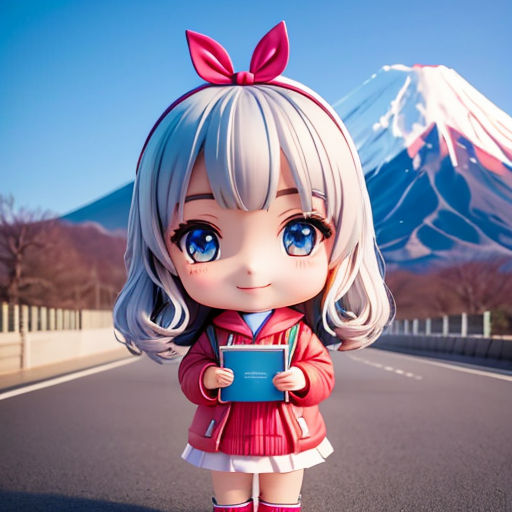
Konnichiwa, My New Friends!
By haru210cocoa

20 Jul, 2023

Welcome to Japan, a beautiful country full of traditions and modern marvels. This is where we meet Tom, an English-speaking boy eager to learn Japanese.
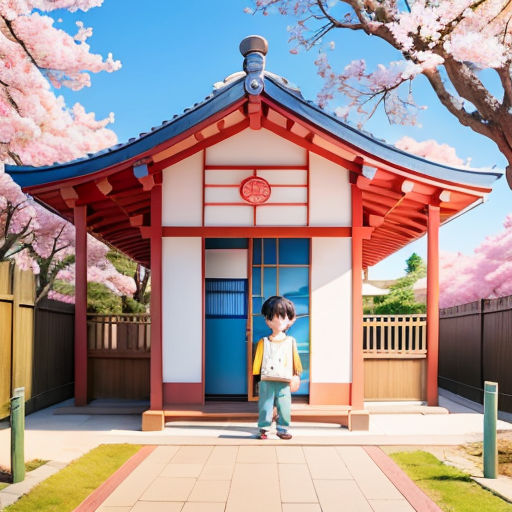
On his first day in Japan, Tom wakes up early. He gets ready, and steps outside his new home, ready for a day full of adventures in learning a new language.
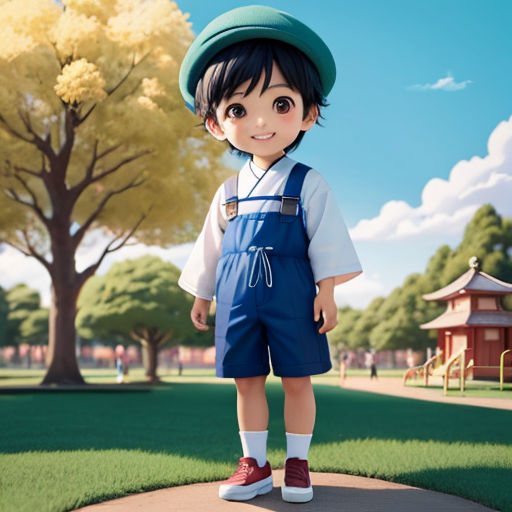
His first stop is the park, where he finds a group of children playing. He walks up to them and says ‘Hajimemashite,' which means 'Nice to meet you.'
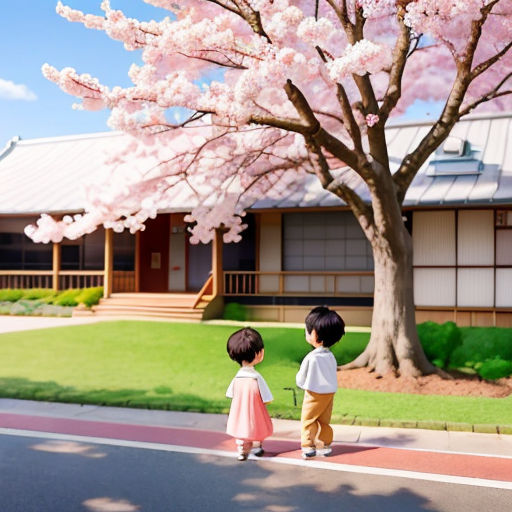
The children turn to him and reply with 'Hajimemashite'. They introduce themselves, saying, 'Watashi no namae wa ____ desu.' which means 'My name is ____.'
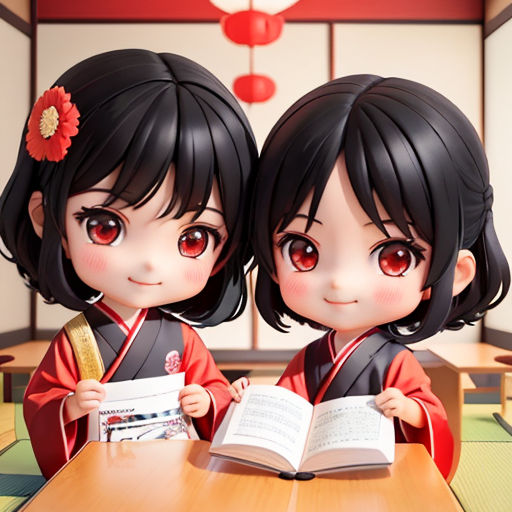
Tom nods and replies, 'Watashi no namae wa Tom desu.' He learns that by saying this, he is telling them his name is Tom.
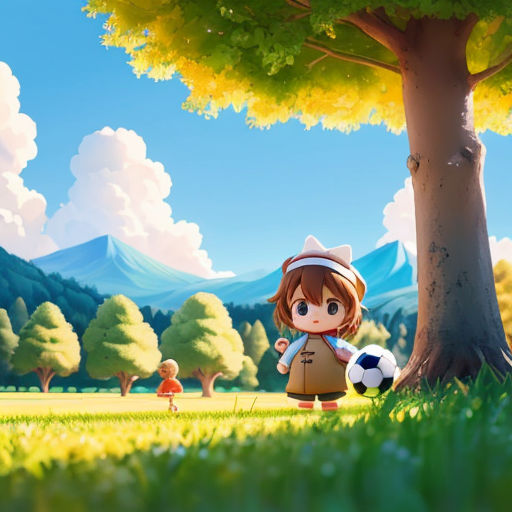
The children invite Tom to play soccer with them. ‘Asobimasen ka?’ they ask, which means 'Would you like to play?' Tom says 'Hai, asobimashou,' which means 'Yes, let's play.'

After a fun game of soccer, Tom's stomach starts rumbling. One of the children asks, 'Onaka suita?', meaning 'Are you hungry?' Tom nods and responds with 'Hai, onaka suita.'

They head to a nearby food stall where Tom learns to say 'Kore wa nan desu ka?' which means 'What is this?' The vendor replies, 'Kore wa sushi desu,' meaning 'This is sushi.'
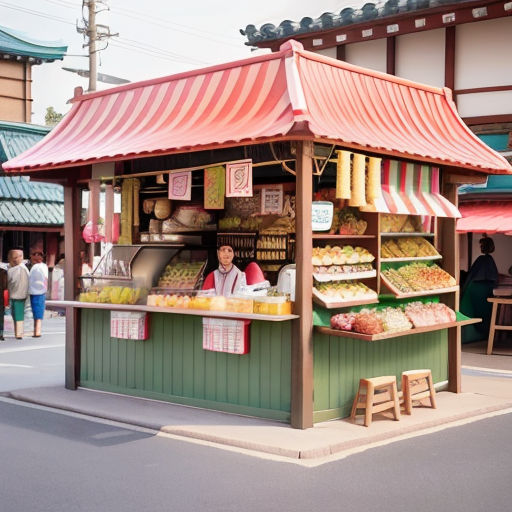
After the meal, Tom thanks the vendor saying, 'Gochisosama deshita,' which means 'Thank you for the meal.' The vendor smiles and responds with 'Douitashimashite,' which means 'You're welcome.'

Tom spends the day exploring and learning more Japanese phrases. He also picks up 'Sumimasen,' which means 'Excuse me,' and 'Doko desu ka?' which he learns is a way to ask 'Where is it?'

As it gets darker, Tom says 'Sayonara,' which means 'Goodbye,' to his new friends. He promises to meet them again the next day.

On the way back home, Tom greets an elderly woman he meets on the street. 'Konbanwa,' he says, which means 'Good evening.' The woman smiles at him and responds with the same greeting.

Back at home, Tom can't wait to tell his parents about the day. 'Okaasan, Otousan, Kyou wa tanoshikatta,' he says, which means, 'Mom, Dad, today was fun.'

His parents are impressed and encourage Tom to learn more. They hope he continues to enjoy his language learning journey in the days to come.

The next day, Tom meets his friends again. Together they visit a nearby zoo. Tom learns to say 'Kawaii,' which means 'cute,' when he sees the animals.
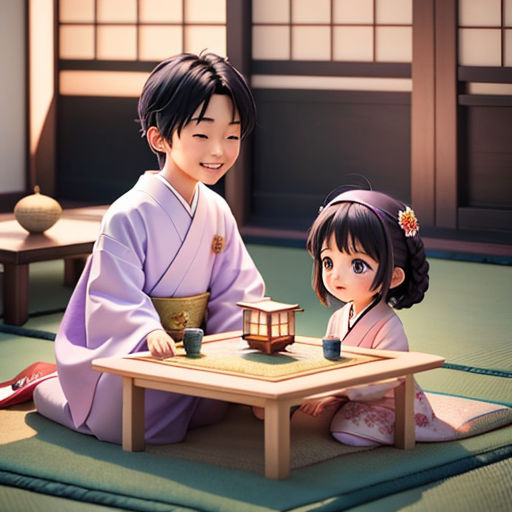
Later they play a Japanese card game. He learns to say 'Yatta,' which means 'I did it,' when he wins. He also picks up 'Mou ichido,' which means 'one more time.'
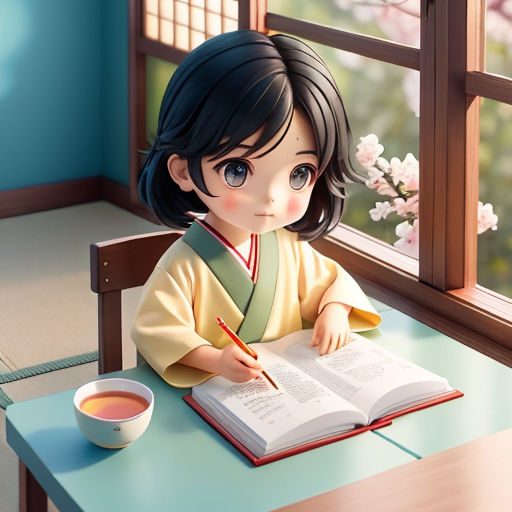
Tom's days are filled with learning and enjoying. He learns Japanese words and phrases for different times of the day, for different meals, and to express various emotions.

As days pass, Tom gets comfortable communicating in Japanese. He enjoys the language and the cultural experiences it brings.

Days turn into weeks, and Tom learns how to say the days of the week in Japanese. 'Getsuyoubi, kayoubi, suiyoubi,' he recites, which means 'Monday, Tuesday, Wednesday.'
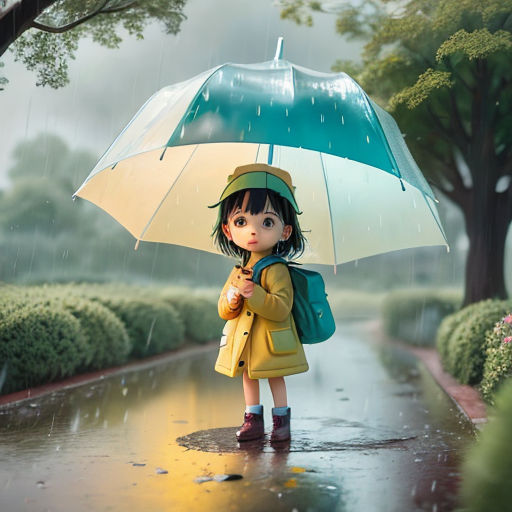
One day, it starts raining while they're in the park. One of the children says, 'Ame desu ne,' which means 'It's raining, isn't it?' Tom learns to say ‘Kasa wo motte imasu ka?’ which means 'Do you have an umbrella?'
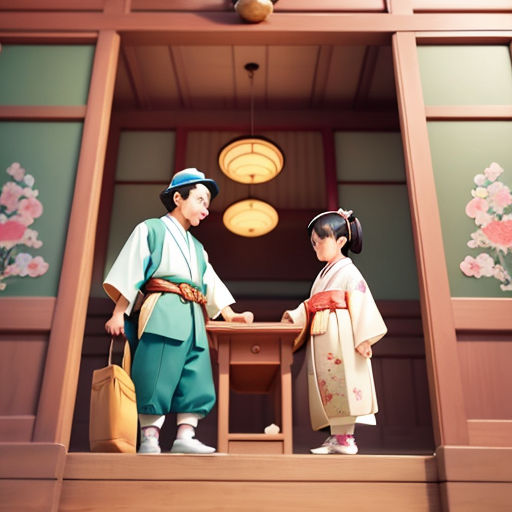
During a visit to a museum, Tom learns to ask, 'Kore wa nani?' which means 'What is this?' He also learns to say, 'Sugoi,' which means 'amazing', when he sees a fascinating artifact.

At school, Tom learns Japanese greetings used in class. 'Ohayou gozaimasu,' is how you say 'Good morning,' and 'Sayounara,' means 'Goodbye.' He also learns 'Arigatou gozaimasu,' which means 'Thank you very much.'
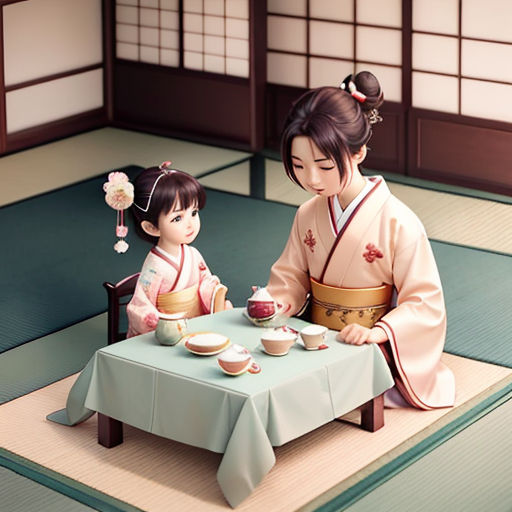
His Japanese tea ceremony class amazes Tom. He learns to say 'Ocha wa oishii desu,' which means 'The tea is delicious.' His teacher responds with 'Arigato,' which means 'Thank you.'
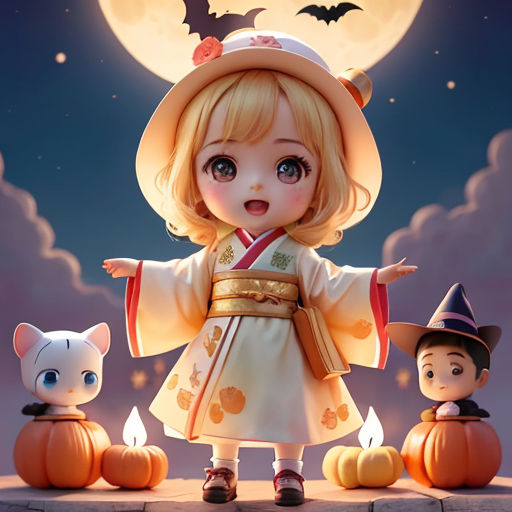
Halloween approaches, and Tom learns to say, 'Trick or Treat' in Japanese. 'Torikku oa toriito,' he practices cheerfully. His friends laugh and repeat the phrase with him.
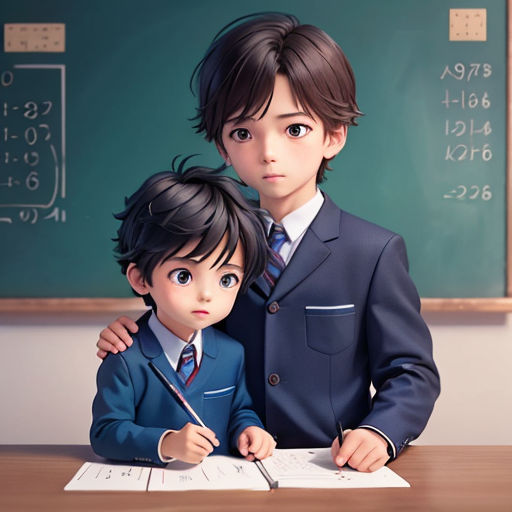
When Tom gets a bad score in Maths, his friend consoles him saying, 'Daijoubu,' which means 'It's okay.' Tom replies with, 'Ganbarimasu,' meaning 'I'll do my best.'
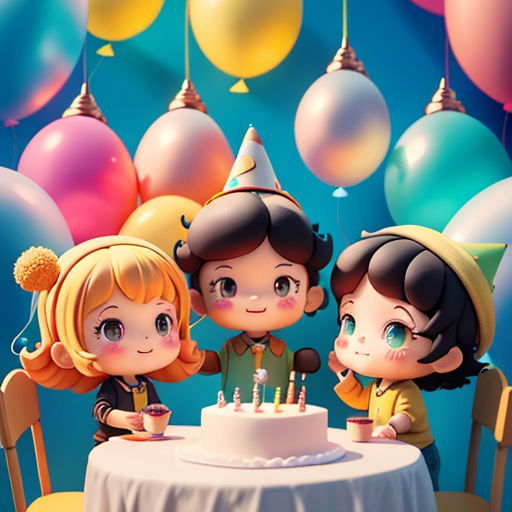
Tom's birthday is celebrated with a surprise party by his friends. They teach him to say, 'Tanjobi omedetou,' which means 'Happy Birthday.' Tom is delighted and thanks them saying, 'Arigato!'
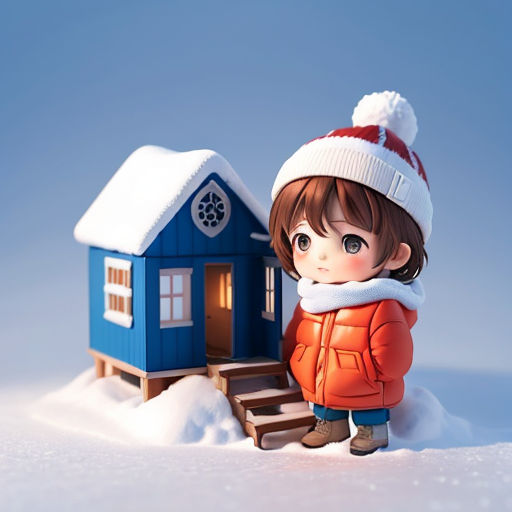
During the winter, Tom learns the word for snow. 'Yuki,' he says, looking at the white flakes falling from the sky. His friend tells him, 'Samui desu ne,' which means 'It's cold, isn't it?'

Tom even learns to write some Japanese characters, called Kanji. His teacher praises him, saying, 'Jouzu desu ne,' which means 'You're good at this.' Tom beams with happiness.
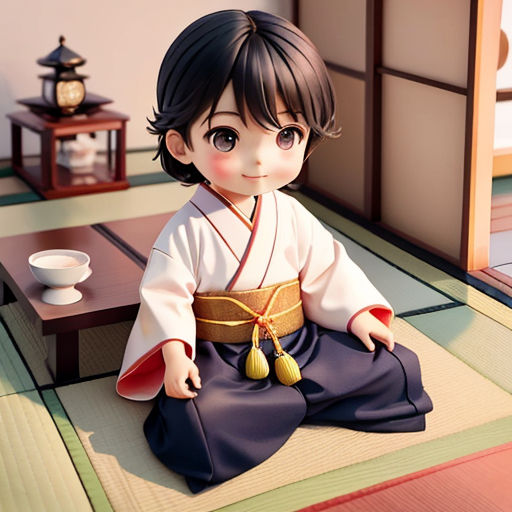
As the days pass, Tom's Japanese improves considerably. He's no longer just a visitor but feels like a part of this vibrant, welcoming culture. He knows now that learning a new language isn't just about the words, it's about understanding and appreciating a whole new way of life.

The book closes with Tom waving goodbye to his friends, saying, 'Mata ne,' which means 'See you later.' As he walks away, he turns back and shouts, 'Nihongo ga daisuki desu,' which means 'I love Japanese.'